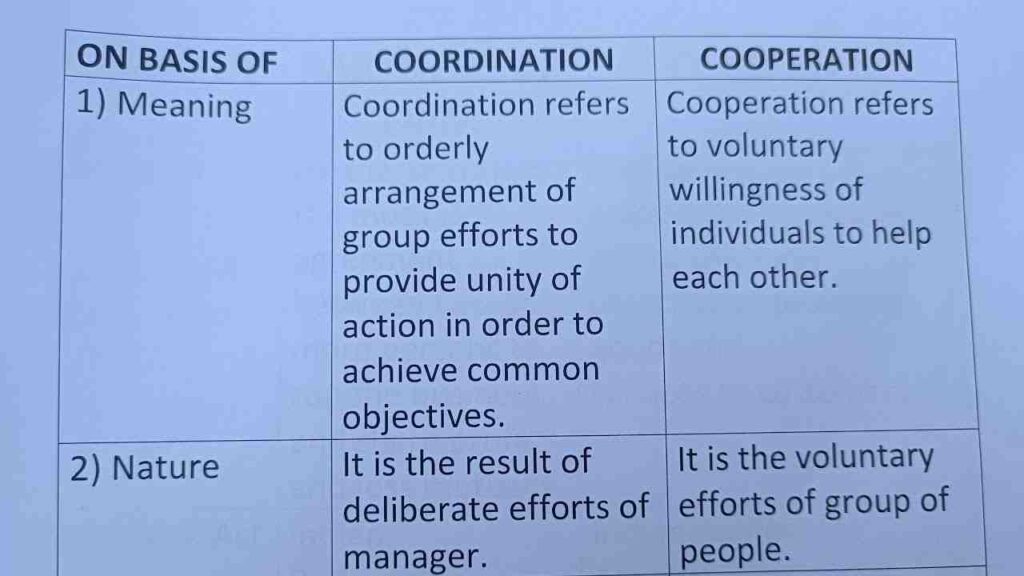
Explore 12 Key Difference between Coordination and Cooperation
Welcome to the fascinating realm of human interaction! In this enlightening read, we explore the difference that distinguish coordination and cooperation, shedding light on the subtle yet significant differences that shape our collaborative endeavors.
12 Difference between Coordination and Cooperation
Despite having similar sounds, coordination and cooperation are distinct strategies with their own advantages and disadvantages. Even though they both entail cooperation and teamwork, it’s important to recognise the subtle differences between the two. Following are 12 significant difference between coordination and cooperation:
Nature of interaction: The emphasis on task-focused interactions in coordination ensures that activities are aligned towards a single objective. Contrarily, cooperation places a strong emphasis on fostering relationships, goodwill, and teamwork.
Goal orientation: By combining individual efforts and resources, coordination focuses on achieving particular goals. Greater emphasis is placed on mutual support and shared values in cooperation, with the goal of achieving success as a group.
Structure: Coordination requires a more formal structure, including roles, hierarchies, and channels for communication. Cooperation operates with a looser framework that encourages adaptability and unofficial connections.
Authority and control: Coordination relies on centralised authority and control mechanisms to guarantee consistency and plan adherence. Cooperation encourages independence and decentralised decision-making while relying on individuals to share their expertise.
Communication style: Coordination places a strong emphasis on precise and clear communication, frequently using formal documents and instructions. Cooperation promotes free-flowing communication, attentive listening, and open discussion.
Timeframe: Coordination typically takes place within a predetermined timetable to ensure that tasks are coordinated and deadlines are met. Beyond short-term objectives, cooperation emphasises ongoing relationships and collaboration.
Interdependence: Coordination emphasises the interdependence of tasks, with each activity influencing the final result. Interdependence among people is emphasised in cooperation, which acknowledges the value of various viewpoints and skill sets.
Resource allocation: Allocating resources effectively in accordance with established plans and priorities is part of coordination. Cooperation encourages resource pooling and sharing, which fosters a sense of shared accountability.
Conflict resolution: Coordination uses hierarchical decision-making to address conflicts, depending on authority to settle disagreements. Cooperation promotes cooperative problem-solving and negotiation with the goal of finding win-win outcomes.
Flexibility: Due to predetermined structures and plans, coordination may be less flexible. Cooperation enables more flexibility and agility to accommodate shifting conditions and new opportunities.
Engagement: Coordination typically involves a more constrained scope, concentrating on particular tasks or projects. A broader definition of cooperation would include relationships, shared values, and mutual support.
Results: Task efficiency is the goal of coordination, with an emphasis on productivity and task completion. Relationship development, trust, and the promotion of shared success are key components of cooperation.
The focus, organisation, method of communication, and results of coordination and cooperation are different. Cooperation prioritises relationship-building, shared values, and cooperative problem-solving while coordination prioritises task alignment and efficiency. Understanding these variations enables people and organisations to use the best strategy for their objectives and situation.
Also Read: Explore 12 Key Difference between Coming together and Holding together